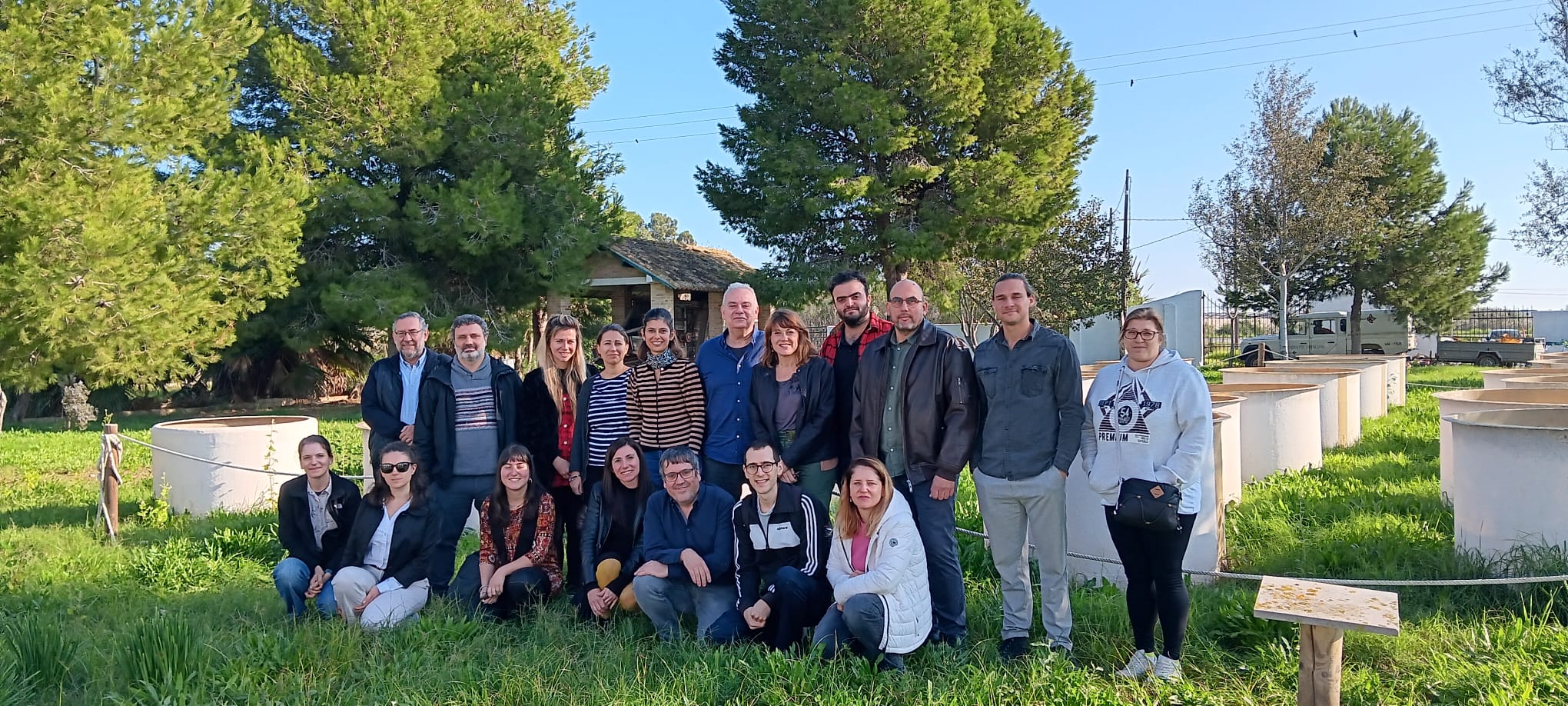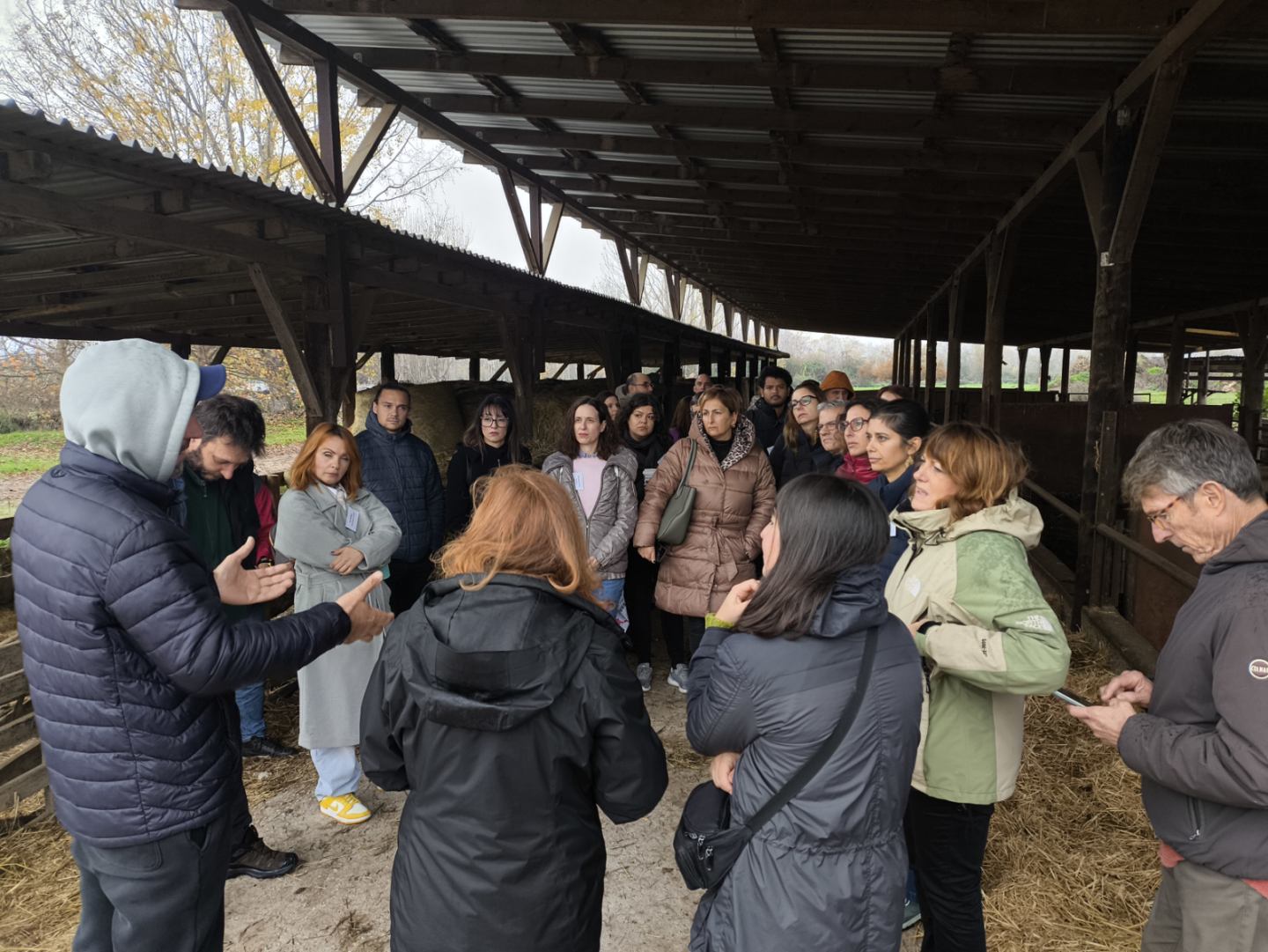Last week, in Valencia, the Wetland4Change Consortium Meeting brought all partners together in person for the second time. Hosted by the University of Valencia at the Cavanilles Institute of Biodiversity and Evolutionary Biology (ICBiBE), the event ran from November 26 to 28 2024, featuring crucial discussions, fieldwork, and a visit to the Albufera Biological Station.
Strategic Planning and Advancing Work Package 1
The agenda on November 26 focused on reviewing partner activities, strategic planning for carbon sequestration mapping, and presentations on the progress and challenges of pilot sites. This was followed by the development of Work Package 1 (WP1), covering environmental mapping, carbon exchange quantification, and data management strategies.
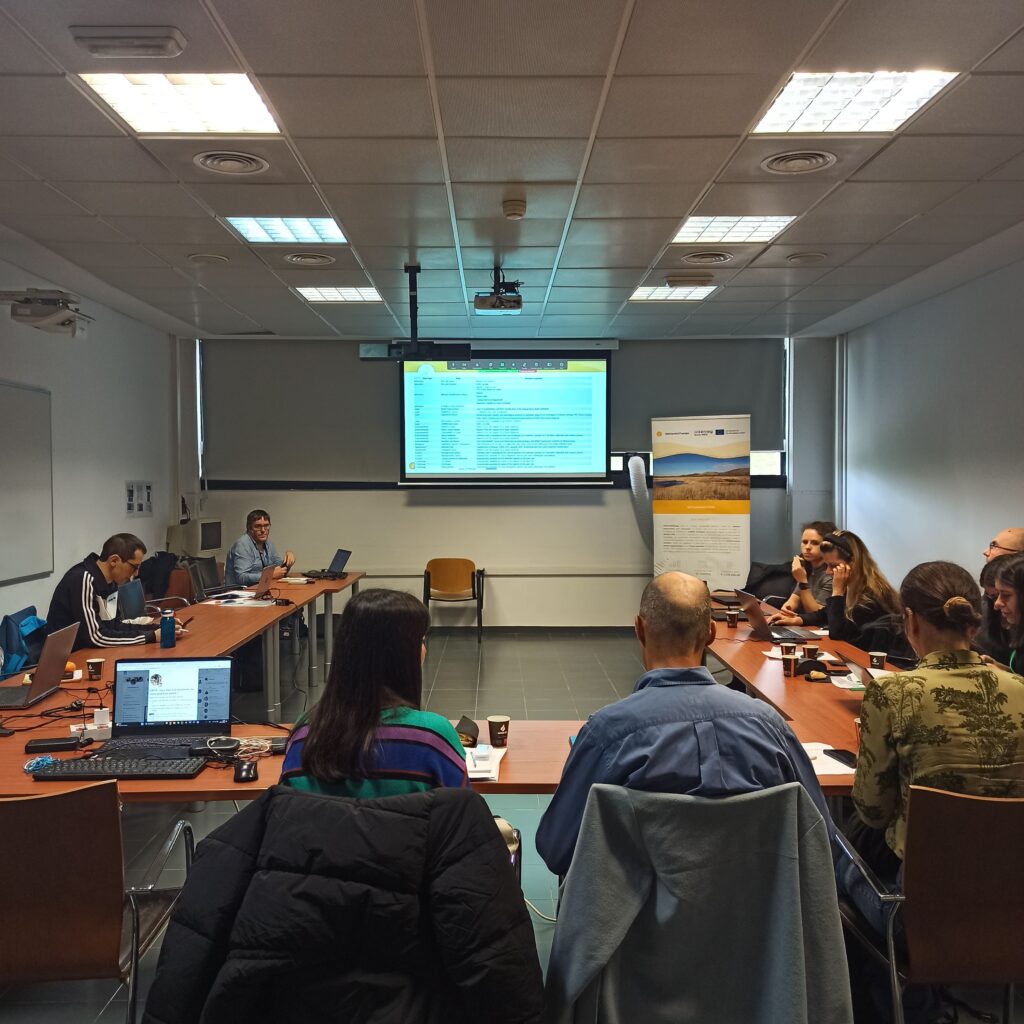
Wetland4Change Consortium Meeting in Valencia – ICBiBE University of Valencia
Central to the day was the development of Work Package 1 (WP1), focusing on three critical components:
- Environmental mapping, employing remote sensing, GIS tools, and field surveys to zone key wetland areas and analyze their ecological characteristics.
- Carbon exchange quantification, which used innovative techniques to evaluate CO₂ and CH₄ fluxes, incorporating factors like salinity, water depth, and vegetation types.
- Data management strategies, aimed at organizing and harmonizing datasets to support comprehensive carbon management efforts.
The methodologies presented, including stratified sampling and hydrological zoning, were showcased by the University of Valencia, WP1 leader and expert in integrating advanced ecological and analytical techniques.
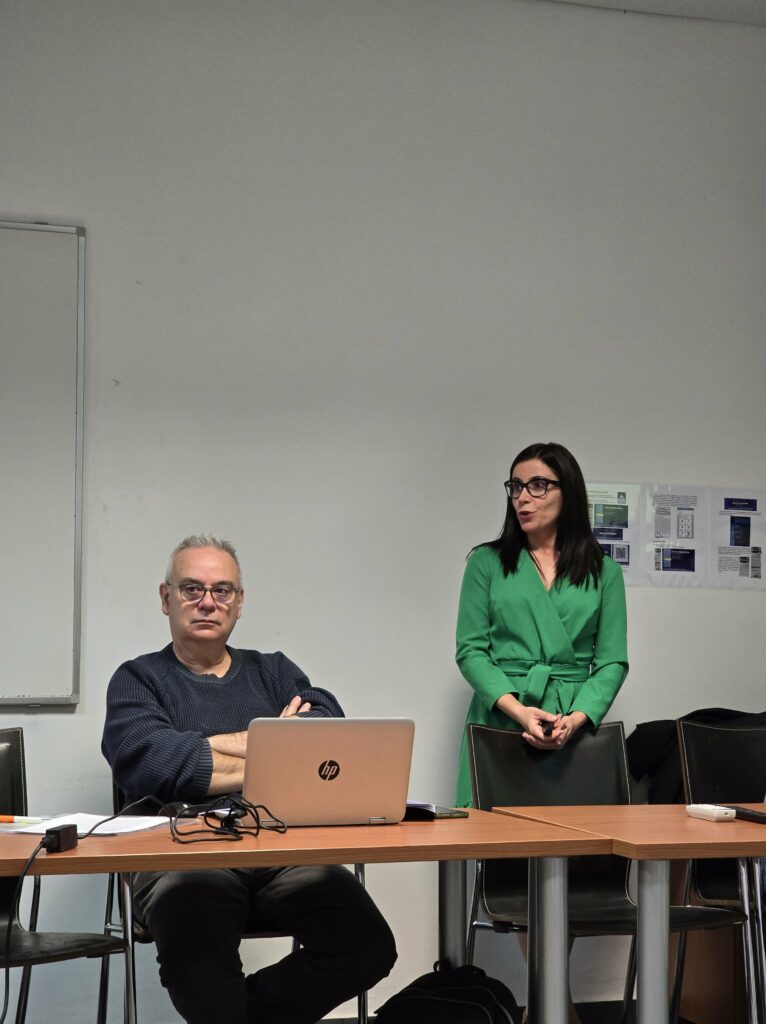
Ivanova Stanimira (University of Forestry, Sofia) and Antonio Camacho (University of Valencia)
The first day of the Wetland4Change meeting on November 26 also provided an opportunity to assess progress on Work Package 2 (WP2), which focuses on the flood regulation capacity of wetlands. This topic was particularly relevant given the recent flash floods in Valencia, which highlighted the urgent need for effective natural solutions to mitigate such events. In particular, Tour du Valat, WP2 lead partner, showcased the methodology, involving data collection, quality control, and the production of missing datasets to better understand flood regulation dynamics.
Hands-On Exploration: Fieldwork and Training in Wetland Ecosystems
Fieldwork took stage on November 27, with visits to constructed wetlands at Tancat de L’Illa and the Albufera Biological Station lab. Participants from the Consortium received training on greenhouse gas (GHG) measurements and ancillary variables and explored rice fields, dune systems, and interdune depressions.
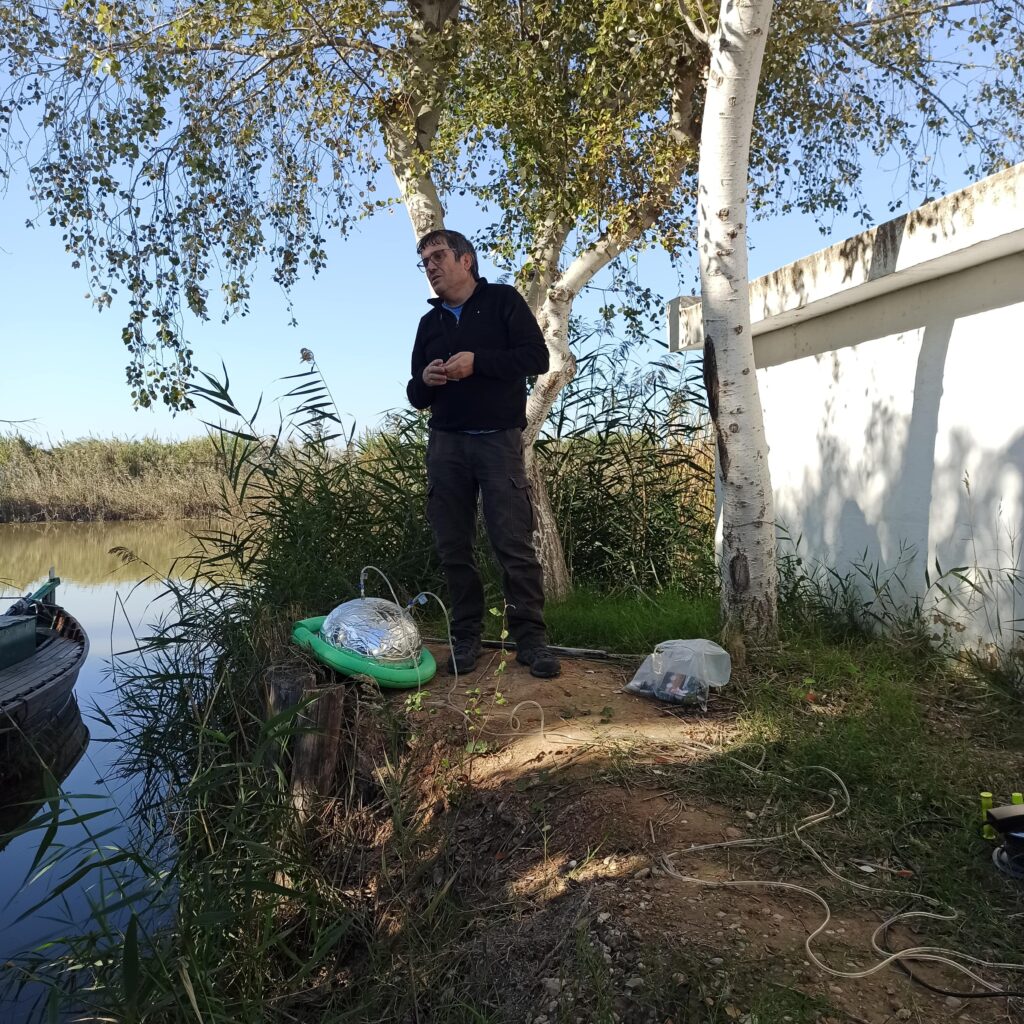
Carlos Rochera University of Valencia Wetland4Change explains how to detect GHG emissions and CO₂ sequestration across different wetland soil types
Hands-on demonstrations on how to detect GHG emissions and CO₂ sequestration across different soil types—both aquatic and terrestrial, with and without vegetation—where conducted and led by experts from ICBiBE. The tools and detection models will be tested throughout the Wetland4Change project at the five pilot sites. These validated models could pave the way for establishing a carbon credit market specifically for wetlands.
Albufera Natural Park is one of the five internationally recognized Ramsar wetlands studied in the Wetland4Change project, along with marshlands in France, Italy, Greece, and Bulgaria.
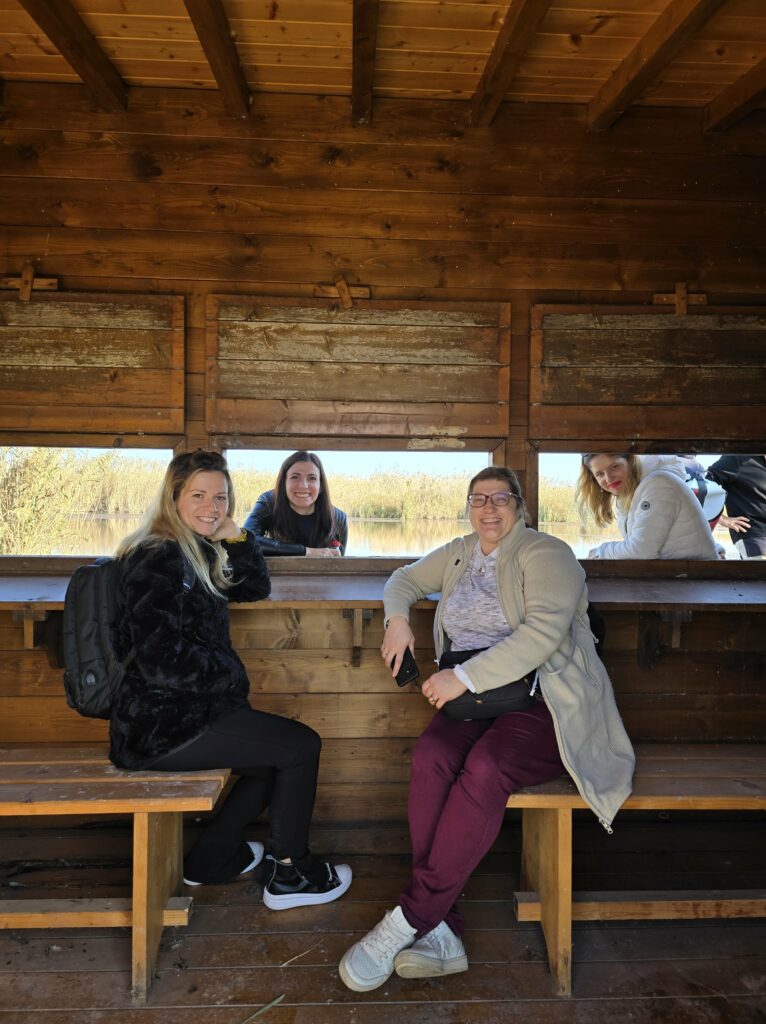
Site visit in the Albufera Natural Park, Valencia
Public Session on Wetlands, Climate Resilience, and Policy Integration
The Public Session on November 28 at the Albufera Biological Station brought together a diverse group of participants, including stakeholders from the pilot sites, representatives of research centers, and institutional leaders.
The session featured key presentations from experts in wetland management, biodiversity, and carbon sequestration, as well as discussions on governance strategies and stakeholder engagement, emphasizing the importance of integrating the wetland ecosystems into broader climate change mitigation frameworks.
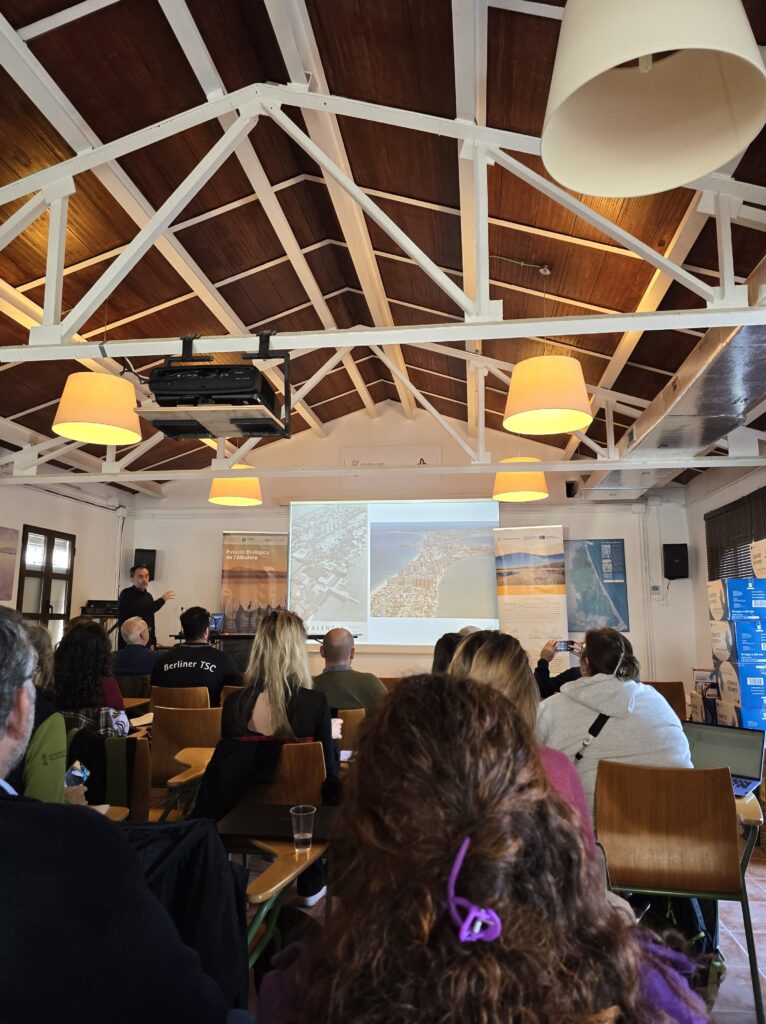
The meeting highlighted the importance of conserving and restoring wetlands to address extreme weather events exacerbated by global warming, such as the recent DANA (isolated high-altitude depression) in Valencia. Therefore the Wetland4Change initiative emerges as a key project to achieve these goals, offering innovative strategies and fostering collaboration between stakeholders, research centers, and institutions.
Professor of Ecology Antonio Camacho: “Ecosystems, especially aquatic ones, provide ecosystem services to society without which human well-being would not be possible,” Camacho explained, emphasizing “the role that the Albufera and its natural surroundings played in mitigating the flooding caused by the DANA that affected Valencia and the Horta Sud area a month ago. Thanks to the wetland, the water flow was managed and spread across a wide area, including the lake and the rice fields”.
Wetland4Change’s general coordinator, Petar Petrov, professor at the University of Forestry in Sofia (Bulgaria), stated that the initiative: “brings together experiences from five Mediterranean countries to develop new strategies and methodologies for preventing floods and enhancing carbon sequestration.”

